
1 Art
True confession: I used to read house porn. You know: those glossy magazines with full-color photos of beautiful houses and gardens. They exist to make people like me sigh tragically as we stare around at the books and Cheerios that litter the floors of our small sagging homes. Now, I can sigh tragically as I gaze at photos of the childhood homes of 20 famous writers (including a couple of poets). I #only wish I could peek inside and see little Flannery or F. Scott strewing books and Cheerios all over the floor. Then my sigh could turn to one of relief: perhaps I, too, might be a mother of Future Greatness, dirty floors notwithstanding.
You all know that we love words around here. And books. And art made out of books. Maria Popova spotlights five artists who make some seriously amazing book sculptures. My faves: the forest and the castle by Su Blackwell and the intricate machinery of Brian Dettmer. Yours?
2 News
NPR is hip to the poetry beat. Every month, they invite a poet to their newsroom and ask him or her to write a poem based on the day’s events. You can read last month’s news poem by Carmen Gimenez Smith, or if you prefer, you can listen to the story.
If you’ve been hanging out around here this week, you already know our big news: Deborah Henry’s debut novel, The Whipping Club (published by T.S. Poetry in February), is on Oprah’s list of summer reads. A few weeks ago, I mentioned that the trailer for the book, which stars Eric Roberts, wasn’t out yet. And it wasn’t. But it is now and, as promised, I’m letting you know. (Warning: this is not for young children or the faint of heart.)
3 Publishing
Poetry is the last #outpost of the printed word. At least that’s the word on the street. Apparently poets feel about their books the way I feel about mine: they return to them again and again, wear seams in the skinny spines, caress their perfect paper pages. Sometimes, they even sniff the glue that binds them. (Not that I do that. Of course not.) Bibliophiles this intense deserve physically beautiful books, and there are a few presses out there who consistently deliver stunning packaging along with their stunning poems.
Here’s an interview with L.M. Browning, who is a poet, novelist, artist, editor, and entrepreneur. (Please note the #Oxford comma.) She talks about her own writing (“poetry is a form of activism on behalf of the more-than-human world”), her vision for the two presses she’s partnering (“we are passionate about poetry as a means of returning the human voice to the polyphonic chorus of the wild”), and her acquisitions requirements (“I look for poetry that is polished, approachable, and insightful”). All I can say is, she has way more passion, drive, and energy than I do. (Hey! Where’s the remote?)
4 Reviews
The world of publishing is anything but an even playing field. Unpublished writers find it consistently hard to break in, which sucks. But once you’re in, it’s not easy either, so it still sucks. And if you’re a person of color, it sucks even harder: reviewers, it seems, tend to focus on books by white people; 90% of reviews in the New York Times last year were of books by white writers. Suck. Suck. Suck.
But hey, as long as we’re talking about white writers, allow me to mention that last month, a new volume of Vladimir Nabokov’s poetry came out. Yes, that’s the Lolita Nabokov I’m talking about, and yes, he wrote poetry, quite a bit of it, actually. According to NPR, this particular selection of Nabokov’s poems, the first to be published in 30 years, is a “fantastic feast.” My favorite line, though, comes from Nabokov himself, who pleads with readers of his verse:
Please stick to it as long as you can bear, and by degrees all kinds of interesting shades and underwater patterns will be revealed.”
That in itself is a line of poetry.
5 Creativity
Suffering from writer’s block? Ed Cyzewski’s six ideas are guaranteed to ensure that you never run out of your own ideas. The problem is, you actually have to do the things he suggests. Like write. How lame is that?
But as long as you’re going to write, you might as well know the rules. According to Pixar, there are 22 musts for a good story. (And speaking of Pixar, am I the only one eager to meet a certain feisty red-haired archer and counting the days till Brave?)
6 Write-It
If Ed Cyzewski’s ideas (above) don’t get you writing, you could try the Write or Die app, created by a certain Dr. Wicked for writers who need a fear factor to get them to put words on the page (or, in this case, the iPad screen). You can use it in gentle mode, where it buzzes at you if you haven’t written recently or long enough. Or you can ramp it up to kamikaze mode where the words start to erase themselves. Oy veh!
If you’re not quite ready to die for your writing (heck, even if you are), you might like to play some June Jazz:
O Solitude! if I must with thee dwell,
Let it not be among the jumbled heap
Of murky buildings…
So begins John Keats’s ode to solitude, which is this week’s prompt for Tweetspeak’s June Jazz found poetry and play-with-words contest. Kindred spirits unite!
7 Poems
I’m not sure why I associate TweetSpeak with candy and sugar and sweetness. Maybe it’s because when I first graduated from reader to fan, the Tweetspeak Pinterest page was filled with candy-colored images. And soon after, we had a candy-themed poetry month. Regardless, this poem by Reno King Lawrence seems to capture the cotton candy sensuousness I’m talking about:
When Sugar Momma Talks
If ever there was a slow
sultry train sensually
bending soul minors,
chugging upon the spine,
taking its riders
from a flooding delta
to alpine woods
where goose bumps
rise, drown, and resurrect…
Read the rest of “When Sugar Momma Talks.”
Monday (June 11) was English Renaissance poet Ben Jonson’s birthday. You probably know him best for his “Song to Celia” (“Drink to me only with thine eyes…”). But he wrote plays, too, and loads more poetry. In honor of his 440th birthday, I’m dishing out this beautiful Jonson poem (read it slow, slow).
8 People
We have a new poet laureate here in the States. Her name’s Natasha Tretheway, she’s a Pulitzer Prize-winning poet, and she sounds like the perfect person to preach poetry in this divisive election year. Please take a moment to read Tretheway’s beautiful “Elegy: for my father.”
Now while you may have heard of Natasha Tretheway, you’ve never heard of Paulette Cherici-Porello. She’s an elderly poet from Monaco, a country that’s struggling to find a cultural ambassador to send to London for this summer’s cultural Olympiad. The country’s rich literary past includes epic poetry about farts and figs (I am not making this up. You think I could come up with stuff this good on my own?), but contemporary Monegasque poetry is almost nonexistent. Except for Ms. Cherici-Porello, who is, alas, too old to travel to London this summer. What’s a rich tax haven to do?
9 Education
I insist that my children memorize poetry. Of course, they get to choose the poems, and they often choose ones I wouldn’t wish to have embedded in my brain. But that’s okay. Nursery rhymes and limericks and goofy nonsense poems are gateway drugs. They lead to a love of rhythm and rhyme and wordplay and, well, poetry. In England, the Department of Education is requiring grade school students to memorize poetry, too. English poet Simon Armitage weighs in on the pros, cons, and questions about memorization.
On the other end of the academic spectrum is the Advanced Degree. I’ve thought about getting one, figured it might help me become a better writer. Then I learned that you don’t get an MFA to become a better writer. You get an MFA so you can teach. Because teachers make (some) money and (most) writers don’t. There’s just one problem: lots of people have MFA’s and lots of MFA-holders are unemployed. There just aren’t nearly enough teaching jobs. What’s a girl (or boy) to do? First, you get creative. You think outside the ivory tower. Then, you host tea parties. And sell vintage clothes.
10 Sound n Motion
Once upon a time, there was a boy who wanted to be great. He worked really hard. He became great. You can watch how great he is:
Then you can listen to the poetic Joel Lovell tell the boy’s story in language so beautiful it made me salivate.
And yes, I know this is old. Like 11 years old. Which in internet time is practically the dawn of civilization. But I’m justifying my inclusion of it because This American Life recently re-ran it. But you know what? Even if they hadn’t, Luis’s ball-handling is poetry in motion and Joel’s reporting is poetry in journalism, and it’s my job to spotlight that kind of rare greatness, even if comes from the advent of time. So here you go, the whole glorious ad that Joel talks about:
Oh. Yeah.
Photos by Claire Burge. Used with permission. Post by Kimberlee Conway Ireton, author of The Circle of Seasons: Meeting God in the Church Year
___________
Buy a year of Every Day Poems, just $2.99— Read a poem a day, become a better poet. In June we’re exploring the theme Trees.
- Top 10 YA and Children’s Books - July 25, 2014
- Literary Birthdays: Dorothy Sayers’ Gaudy Night - June 13, 2014
- Literary Birthdays: C.S. Lewis, Louisa May Alcott, Madeleine L’Engle - November 29, 2013

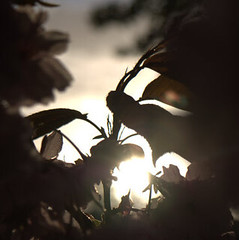
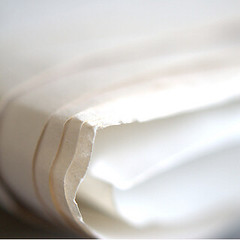

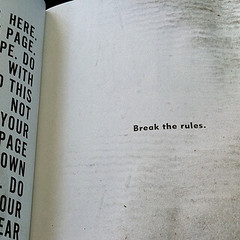
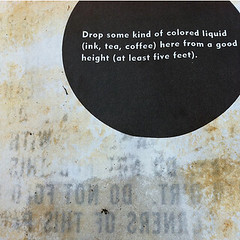




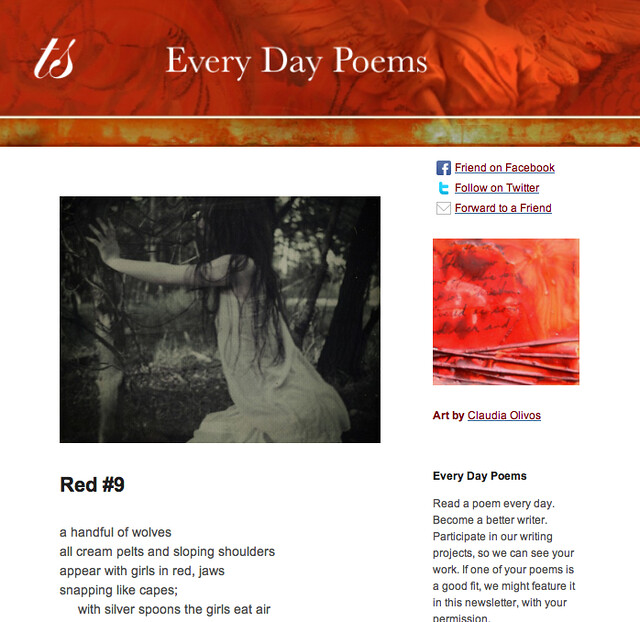
L. L. Barkat says
Oh, God, girl, you make me laugh!! 🙂
This is like stand-up comedy. Who knew it could be done around poetic picks?
You are the mother of current comedic greatness. Don’t worry about the Cheerios. They’re grist 🙂
Maureen Doallas says
Great collection of links, Kimberlee.
I’ve watched several times that trailer for Deb’s book. Eric Roberts nails that role.
Kimberlee Conway Ireton says
Laura, so glad I could tickle your funny bone today. You make me feel like a frickin’ comic genius 🙂 (Thank you!)
Maureen, when *you*, the woman-about-poetry-town, say it’s a great collection, I feel proud proud proud.
ed cyzewski says
Thanks for including me in this list. We have plenty of ideas in us, but tapping into them is the challenge!
Kimberlee Conway Ireton says
Ed, I was so happy to find your post, so happy that you mentioned cutting out the noise as the number 1 thing we need to do to keep the ideas flowing and the writing going. It’s such an important reminder in our noise-filled world to just turn.it.off on a regular basis.
Diana Trautwein says
This is great stuff, Kimberlee. And wonderfully presented, too. I’m with Laura-stand-up comedian-of-the-year of the poetic crowd. LOVED the book sculptures. And Eric Roberts was properly creepy. That book just nailed me to the floor. Still weepy inside.
Kimberlee Conway Ireton says
Diana, Will you come live at my house? You always make me feel like a million bucks! 🙂
Tania Runyan says
Love the writers’ homes! Did Kafka live in that whole building or one apartment? If so, which one? (Okay, I guess that’s not necessary.) By the way, Cheerios on the floor unleash a primal rage in this mama.